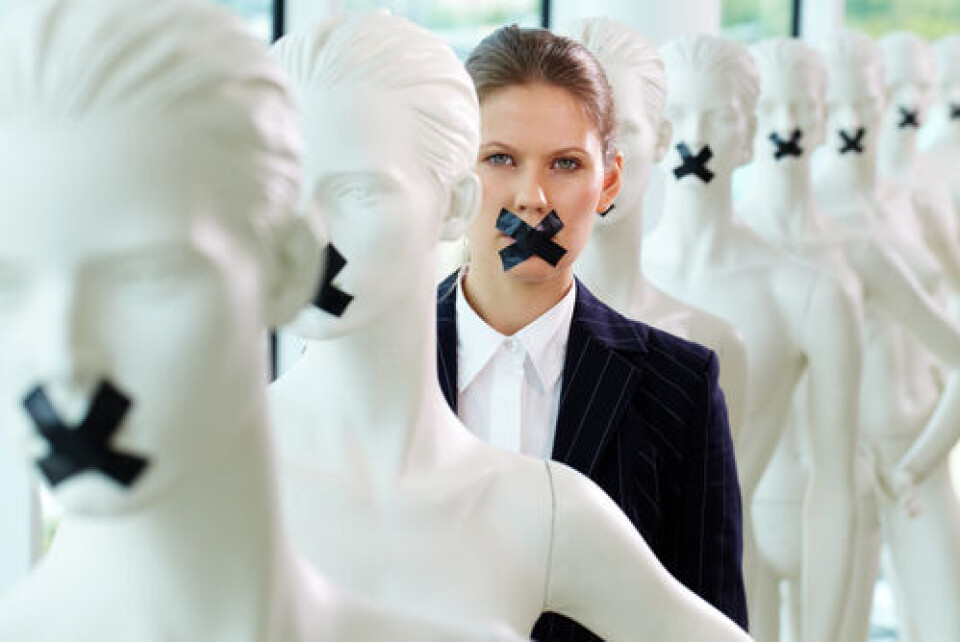-
Letters: France's wasteful healthcare system needs a rethink
Reader says it would not be fair to ask people to pay more based on their age
-
Letters: The reality of finding a new doctor or dentist in France
Finding a replacement is nigh impossible, says Connexion reader in Lot-et-Garonne
-
The magic of mayonnaise: Why a homemade emulsion always woos guests in France
Plus, which shop-bought mayo brand is best?
A French perspective on sexism to mark International Women’s Day
Théophile Larcher looks at sexism in French society and is concerned by what his experiences reveal

France is still a heavily sexist country.
That’s the conclusion of a report prepared for French Prime Minister Élisabeth Borne ahead of International Women’s Day on Wednesday (March 8).
Perhaps even more worryingly, as a Frenchman the pervasiveness of this sexism is not something I am conscious of, perhaps lending weight to the picture painted in the report.
The dossier was compiled by the High council for equality between women and men (Haut Conseil à l’égalité entre les femmes et les hommes - HCE).
It quoted a survey last year that revealed 93% of French people thought men and women do not receive the same treatment in at least one of society’s spheres, whether that is the work environment, public space, school or family life.
The report said some sexist incidents are still seen as “trite”, “insidious” or “well-meaning”.
A probe into the number of people registered by the police as victims of sexism, revealed there were 220,000 in 2020, up 8% on the previous year. The majority of victims, 86%, were women.
Awareness of sexism
Among the few positive points in the report are that French society is now more aware of the existence of sexism, as manifested by the #MeToo movement.
Nevertheless, it has still passed me by.
Born male in 1993 and having spent my upbringing in some of the wealthiest areas and schools of Paris, my lack of experience with sexism is limited to tales from friends and family and selected readings.
I have never witnessed any of the issues reported by the HCE neither in my family nor through my school education system or at the media outlets I have worked for.
I studied in high school at Janson de Sailly, one of the biggest state schools in the XVIth district of Paris where méritocratie – the idea that merit through work is the unfettered reason for success – was established as a sacrosanct value.
I have never received any lessons on sexism or recall history, economics and French lessons having been taught through the lens of women, for instance.
My French teacher used to roll call using “mademoiselle” for women while only referring to men by their last name, a feature I have come to analyse as old-fashioned French traditions rather than a mark of sexism.
The first insight to male dominance on women was learning about the gender pay gap, around the time I entered Panthéon-Sorbonne university in Paris.
Gender pay gap
It is notable that activities attached to the service or caring industry such as nurses and midwives, home helpers or childcare workers are some with the highest percentage of women and the lowest paid of the country.
While nurses are paid €2,000 net on average, childcare workers are closer to €1,600 and home helpers around €1,850.The national average is €2,012, according to the Insee.
This, in part, explains why women earn less than men.
Latest figures provided in a bill from far-left La France Insoumise leader Jean-Luc Mélenchon claimed women earn 28.5% less than men.
The government puts the gap at 22%.
Some conservative friends claim the gap is smaller but I would argue it is a broader issue than just remuneration.
Read more: Gender pay gap: Women in France work ‘for free’ from today
My sister says some women pay the price of being able to have children, with employers unwilling to employ them because of the extra costs their maternity leave would impose on the organisation.
She hopes France introduces new laws that would allow women to take maternity leave and have the cost shared or shouldered by the husband’s or partner’s company.
Related articles
Will France’s next PM be a woman? If so, she will not be the first
French students create website for reporting sexual assault incidents
























